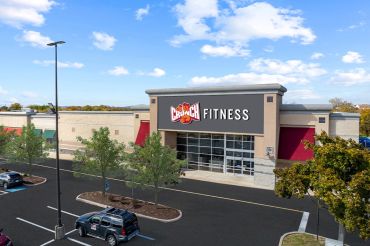How Mobile Technology Is Driving Commercial Real Estate’s Shift to Leveraging Real-Time Data

[Sponsored]
Mobile technology is an intrinsic part of life for many people nowadays, from checking a flight’s status, to shopping, to booking an Uber.
While the commercial real estate industry has historically been slower to embrace mobile tools, adoption is now on the rise, with real estate users now experiencing the efficiencies long expected by their consumer counterparts.
This rise in mobile is driving the adoption of commercial real estate technology more broadly, said Ryan Masiello, co-founder and chief revenue officer at Manhattan-based VTS, who notes that as landlords see real-time asset and leasing data entered by their brokers and leasing teams via mobile devices, the broader value of utilizing a technology solution to manage overall leasing and portfolio performance becomes increasingly evident.
“Since the early days of VTS to now, we’ve noticed a tremendous shift in information flow and ultimately how our clients are leveraging real-time leasing information to make better decisions,” said Masiello. “When we first launched the company, information around leasing activity was, on average, 20 days old, as brokers were backdating their activity reports. Fast forward to today, the average age of that same data is less than one day, representing a 20x reduction in the time it takes to access critical data.”
Firms such as VTS have been developing applications that make it easier for brokers and property owners to manage portfolios and market assets to tenants regardless of whether they’re in the office or on the go.
“Landlords are really starting to understand the depth of critical information they can access at their fingertips and are putting it in place to reduce the deal cycle and downtime,” said Masiello. “Whether it’s getting the whole picture of leasing activity from their brokers on a daily basis, or setting up leasing teams to answer any question a prospect may have while on a tour, mobile technology is enabling landlords to manage the leasing process much more effectively, which in turn has a significant impact on portfolio performance.”
VTS offers mobile applications that at the touch of one’s fingertips, a broker or owner can find information about expansion possibilities in a building, other available spaces and lease rates in other assets. This cuts the corner of when a potential tenant asks a technical question about a building, and leaves a broker having to say “let me get back to you with that.” In addition to its desktop and smartphone capabilities, VTS recently launched an iPad application for both brokers and owners to help easily track information while on the go.
One property owner utilizing mobile technology with open arms is Jonathan Iger, chief executive officer of Sage Realty Corp., also of Manhattan, which uses VTS applications and Floored, which provides 3D renderings of spaces. Though asset managers might know their individual properties in and out, they might not be privy to space availability or other details about assets in the portfolio. In the case of Sage, the company has three properties on the same area of Third Avenue, 747 Third, 767 Third and 777 Third. With access to mobile technology, an asset manager of one of those facilities can, for example, verify if there is a more suitable space for a tenant next door.
“It’s paramount to our business,” Iger said. “It allows our staff to more effectively promote and lease space in the portfolio.”
Additionally, Iger is able to keep track of outside brokers that work on the Sage portfolio, such as JLL (JLL) about their progress and get immediate information about building tours with prospective tenants, and it cuts back on the amount of in-person meetings updating the status of properties that make people commute.
Speaking of JLL, Peter Riguardi, president of the firm’s New York Tri-State region, said industry professionals are able to get information through mobile technology that used to be provided monthly on an “instantaneous basis.”
VTS’ Masiello pointed out that institutional investors are increasingly getting on board with these types of products due to an increase in transparency in commercial real estate and the pressure to more rapidly provide investor returns.
“These are big machines that have a lot of moving parts and need to increase their efficiency,” he said. “This will fundamentally change how a company runs its business.”


